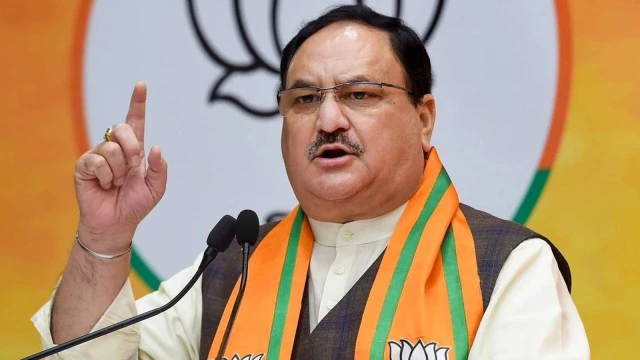Union Health Minister JP Nadda on Saturday highlighted India’s remarkable progress in medical education and healthcare, revealing that the number of medical colleges in the country has more than doubled over the past eleven years- from 387 in 2014 to an impressive 819 today.

Speaking at the 50th Annual Convocation Ceremony of the All India Institute of Medical Sciences (AIIMS), Nadda shared that this massive expansion reflects the government’s sustained commitment to strengthening the healthcare system and ensuring that quality medical education becomes more accessible to aspiring doctors across the nation.
Along with the rise in the number of medical colleges, the availability of medical seats has also witnessed an extraordinary jump. Undergraduate seats have surged from around 51,000 to 1.29 lakh, while postgraduate seats have grown from 31,000 to 78,000. Looking ahead, Nadda announced that an additional 75,000 seats, both undergraduate and postgraduate-are expected to be added in the next five years, ensuring that more students can pursue careers in medicine and help meet the country’s evolving healthcare needs.
Addressing the graduating students of AIIMS, the minister congratulated them on reaching a significant milestone in their careers and praised the institute for its unparalleled contribution to advancing medical education, research, and patient care. “AIIMS has set the benchmark for excellence in healthcare and medical science. Its alumni have not only transformed healthcare delivery in India but have also earned recognition globally,” he said.
Nadda urged the young doctors to serve people with empathy and compassion, reminding them that medicine is not merely a profession but a lifelong service to humanity. “You are stepping into a field that touches lives every single day. Let your knowledge be guided by ethics, and let innovation be your strength as you respond to the changing health challenges of our country,” he added.
The minister also took the opportunity to share the country’s progress on several key public health indicators. According to the latest Sample Registration Survey (SRS) data, India’s Maternal Mortality Ratio (MMR) has declined significantly, from 130 to 88, showing steady improvement in maternal health outcomes. Similarly, the Infant Mortality Rate (IMR) has dropped from 39 to 27, marking a noteworthy step towards ensuring safer births and healthier childhoods.
Further, Nadda noted that both the Under-Five Mortality Rate (U5MR) and Neonatal Mortality Rate (NMR) have seen considerable reductions, by 42 per cent and 39 per cent, respectively, outperforming the global average. These achievements, he said, are a testament to the combined efforts of healthcare workers, government programs, and community participation in promoting maternal and child health.
Another encouraging statistic shared by the minister was India’s progress in tackling tuberculosis (TB). Citing The Lancet Report, he said that the incidence of TB in India has dropped by 17.7 per cent, more than twice the global reduction rate of 8.3 per cent. This, Nadda emphasized, reflects the success of national health initiatives and the resilience of India’s public health infrastructure.
In his closing remarks, the health minister called upon the new graduates to carry forward AIIMS’s legacy of excellence and integrity. He encouraged them to remain lifelong learners, innovators, and researchers, dedicated not just to medical practice but also to pushing the boundaries of knowledge.
“Medicine is an ever-evolving field,” he said. “The best doctors are those who never stop learning, who keep questioning, exploring, and discovering. Stay curious, stay compassionate, and stay committed to your calling. The nation looks to you not only as doctors but as changemakers who can shape the future of healthcare.”
As the young graduates stepped into the next chapter of their professional lives, Nadda’s message served as both an inspiration and a reminder, that while technology, research, and institutions continue to advance, the heart of medicine still lies in empathy, ethics, and service to humanity.
https://thenewstudent.com/why-indian-parents-prefer-ib-cambridge-schools/